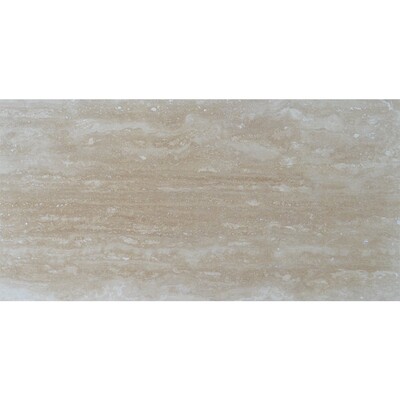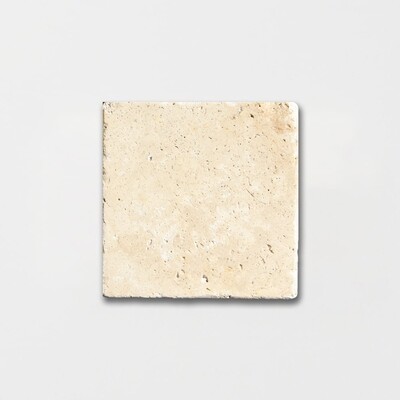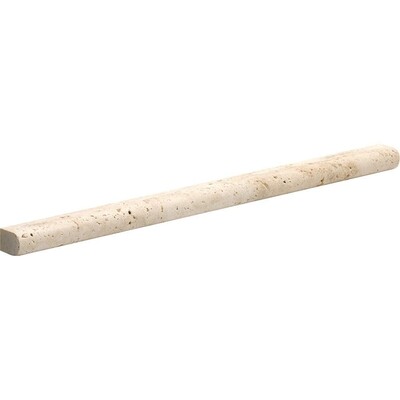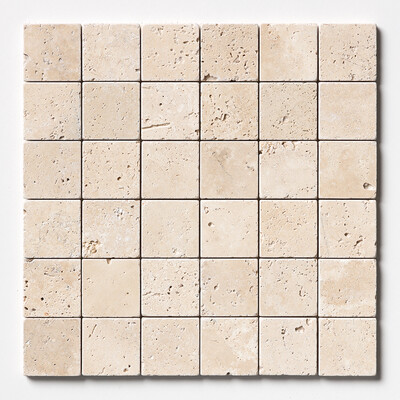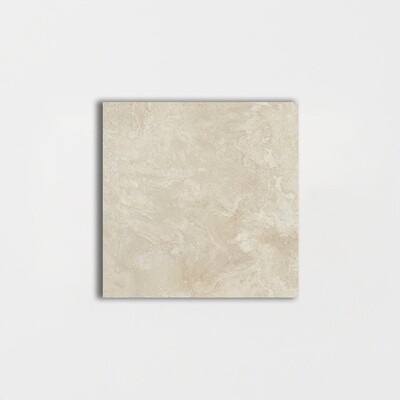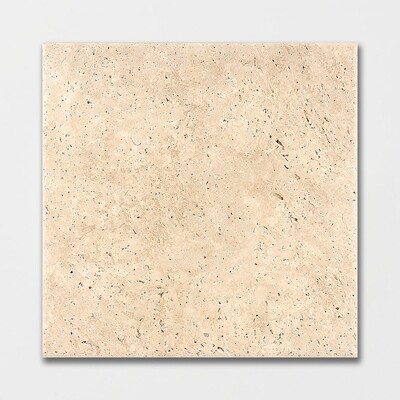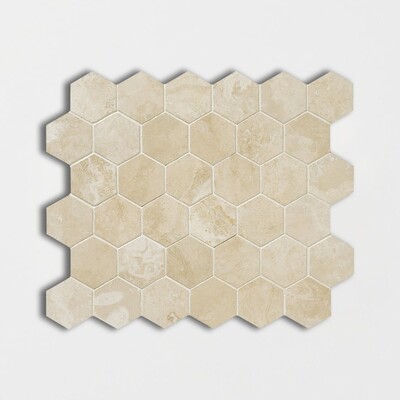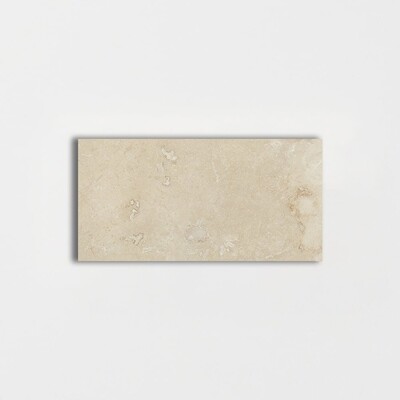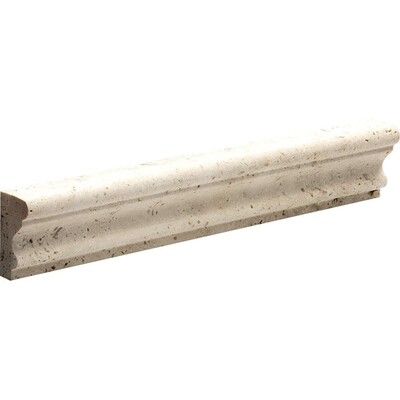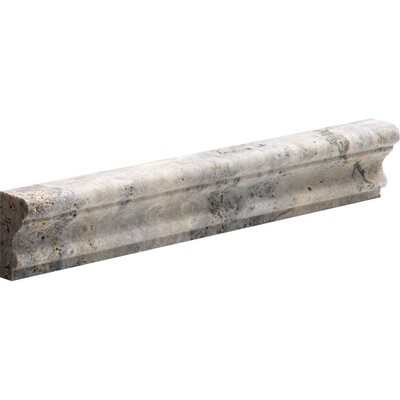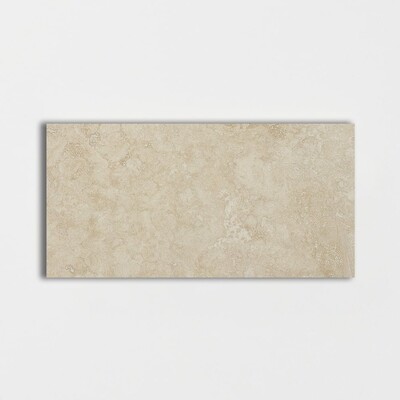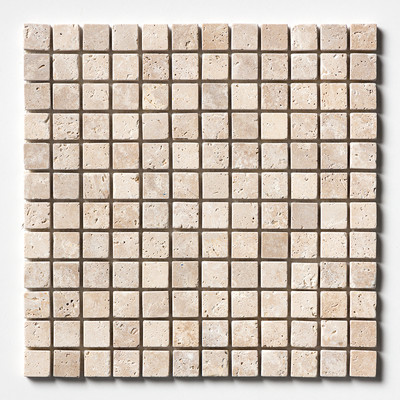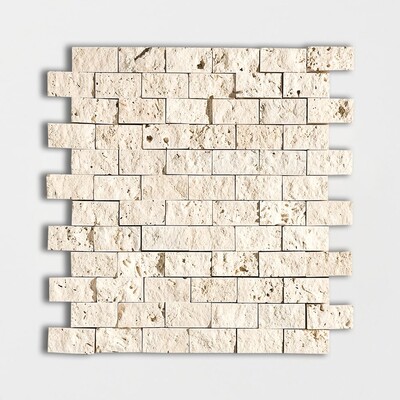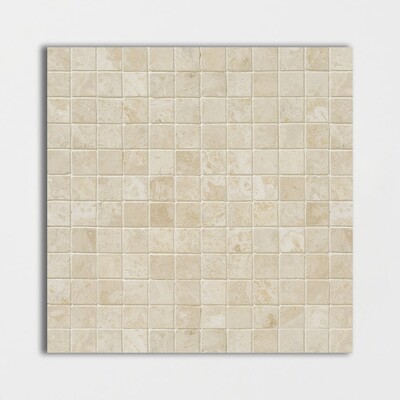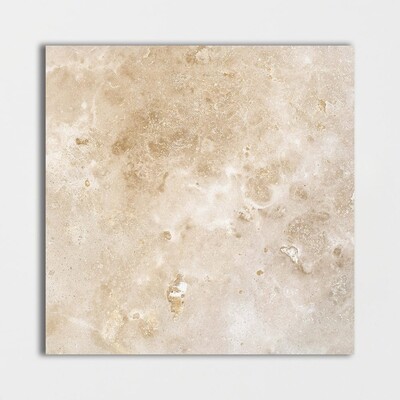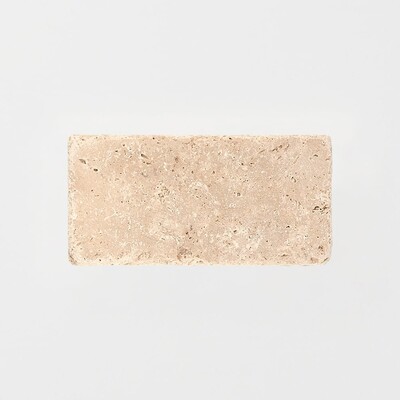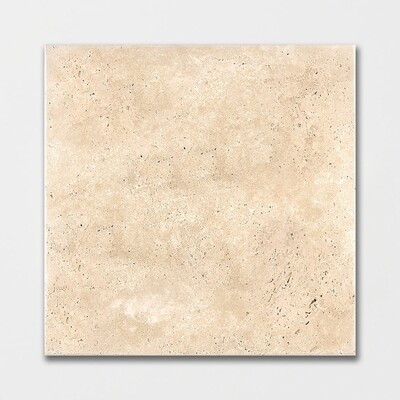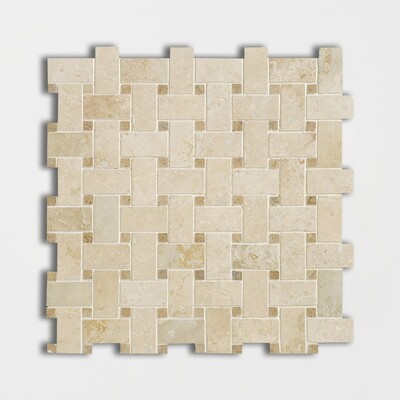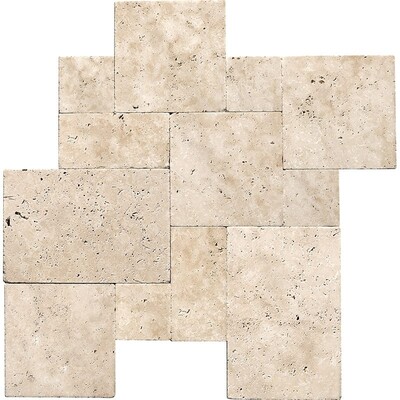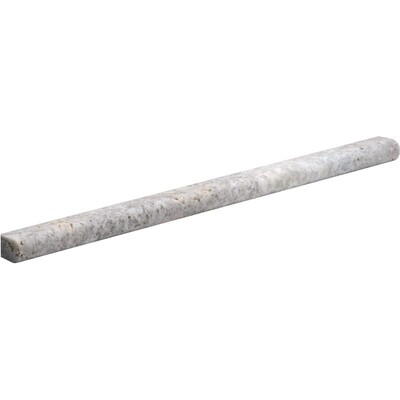1–20 of 41 results
Travertine tile is formed from limestone that develops in high temperatures. Travertine tile is most notably formed in hot water springs. These springs exist all around the world, so travertine tile has no specific place of origin. Travertine can be sourced from many locations from Italy to Iran, to Peru. In North America, the famous Yellowstone National Park is where a large portion of travertine is found.
All over the world, travertine tile is prized as a durable and elegant natural material. Travertine tile is used in commercial areas and has many residential applications. In homes, you can find travertine flooring, travertine countertops, and travertine on backsplashes. Homeowners also use this amazing tile for shower and tub surrounds, fireplace surrounds, and for outdoor pavers along walkways, patios, and swimming pools. Unlike materials like granite and marble, travertine has a naturally worn appeal suitable for both casual and formal decor.
Aside from its visual appeal, travertine tile has several key advantages. Travertine tile is a natural stone that boasts a rustic charm. The natural color variations of the tile make it a lovely addition to outdoor spaces. The look of the travertine applies to commercial and residential designs.
Additionally, travertine tile is an affordable option for those looking to have natural stone without breaking their budget for granite or marble tile. Using travertine instead of pricier stones will give you a high-class result within a more palatable price range.
Lastly, travertine tile comes in several luxurious finishes, so you can choose a tumbled travertine tile for an ultra-natural look, or go with a polished travertine tile that boats a smooth and shiny gleam.
Travertine does have a couple of slight disadvantages, which we have already touched upon. The major disadvantage to travertine lies in the fact that the material often requires more frequent sealing than other stones. Sealing is essential to keep travertine tile looking its best and reduce wear on the tile surface.
Travertine tile can be used in showers, however, it's not the most durable material for the space. Travertine tile is porous so constant exposure to water. Water from showers, sinks, etc., can wear down the surface of travertine tile over time. Even with a sealant applied, travertine tile can be affected by high water exposure. Outside of the shower, tumbled travertine tile floors can work beautifully if the tile is properly applied and sealed.
Travertine shower tile can be slippery when wet so it's not typically recommended for this area. The porous composition of travertine makes it more likely than other stones to break down from exposure to water.
If you notice that your travertine tile is turning black then you are not alone. All shades of travertine can darken slightly over time. Shades such as white travertine tile have an increased tendency to darken over time. As the iron compounds in the stone mix with oxygen, the reaction causes the tile to darken. Buildup from dirt can also stain light-colored travertine tile over time.
The time intervals for travertine depend on whether you have indoor travertine tile or outdoor travertine tile. If your tile is outdoors, it may need to be sealed every three or so years. Indoor travertine tiles can require a sealant every three to five years. High-traffic areas and frequent areas with high moisture exposure will need to be resealed more frequently.
Travertine tile does need to be sealed. While this tile is known to be durable, the truth is that it isn’t as water-resistant as other types of stone, such as granite. Travertine tiles should be sealed upon installation with either an enhancing or natural sealer. Then a new coat of sealer should be applied periodically, to help maintain the tile’s quality and luster.
The answer to this depends on the finish of your tile. Polished travertine tiles and honed travertine tiles can both be very slippery when wet. Textured finishes like sandblasted travertine and antiqued travertine tile (also known as tumbled travertine) offer more natural traction. However, they should still be used with caution.
Travertine tile is not known to crack easily. However, it is a natural stone with high moisture absorption. Therefore, water can erode the tile if it's not sealed with a protective coating. Travertine should be sealed more or less frequently depending on foot traffic, and moisture exposure which includes rain/snow/ice.
No, travertine tile is not hard to maintain. You can easily maintain travertine tile using a gentle cleanser, some warm water, and a soft mop or microfiber cloth. If you have installed travertine kitchen floors, travertine bathroom floors, or travertine tile backsplash, cleaning with gentle materials will keep your tile looking like new. Clean up any spills on the tile immediately to avoid staining.
Travertine tile is not as boldly veined as marble tile, and it's not as deeply hued as granite but it does offer lovely color options. Most travertine tiles will range from medium to warm-toned neutral shades. If you are in the market for a rustic home design we have several lovely options such as our Ivory Tumbled Travertine Mosaic, Ivory Honed Filled Travertine Mosaic, and our Ivory Honed Filled Hexagon Travertine Mosaic.
We have these exquisite styles and much more available for you to explore.
About Travertine Tiles
If you take a stroll through Rome, you'll see travertine tiles everywhere. In fact, travertine has adorned some of the most iconic sights from the ancient world. The Roman Colosseum, St Peter's Basilica, and Trevi Fountain, to name a few. Therefore, it's no surprise that travertine was one of the Romans' top building materials of choice. Roman architects used travertine to build amphitheatres, aqueducts, public baths, temples, and much more. Thousands of years later, homeowners and interior designers around the world are now choosing travertine to deck their floors.
So what is travertine? Simply put, it's a sedimentary rock and a type of limestone that typically forms around hot springs. It has warm earthy hues of beige and brown with distinct veins, making it ideal for anyone in want of an organic, natural design for their interior. If its aesthetic appeal wasn't enough, it's also a hardwearing and practical natural stone. Here at Country Floors, we are proud to offer the finest travertine tiles on the market.
Where to Install Travertine Tiles
Travertine tiles are suitable for most wall and flooring applications, indoors and outdoors, commercially and residentially. With multiple finishes available, we are proud to offer the best type of travertine to suit your application and vision.
Travertine flooring is long-lasting, durable, and easy to maintain, making it a practical choice as well. Nevertheless, like most natural stones, honed-filled travertine requires periodic re-sealing.
Indoor Travertine Flooring
Travertine flooring is perfect for the indoors. Its light tones will instantly make any room look bigger and brighter. It pairs nicely with wood furniture and works well with nearly all color schemes.
This natural stone is very hard, so it's scratch and chip-resistant. It's one of the most low-maintenance natural stones available.
Bathroom Travertine Tile
Travertine tiles are a popular choice for bathroom applications. Travertine is suitable for both wall and flooring installations. However, it is porous and requires regular re-sealing to keep it moisture-resistant.
Additionally, honed and filled travertine can be quite cold and slippery, so make good use of bath mats if you're installing it in a residence. For households with children or elderly residents, we suggest installing our antiqued finish travertine for bathroom applications, as it's less slippery.
Outdoor Travertine Flooring
Due to its durable properties, travertine tiles can also be installed outdoors for patios, garden pavers, or poolsides. Our tumbled finish travertine has non-slip properties perfect for the outdoors.
See our Landscape Stone Collection for travertine tiles suitable for exterior applications.
Travertine Tile Finishes
Honed Filled
A honed and filled travertine tile finish is sleek and elegant, with a subtle sheen. It's ideal for indoor wall and flooring applications. The natural holes of travertine are filled with epoxy to create a flawlessly smooth surface.
Tumbled
Tumbled travertine tile is travertine in its most natural form. The holes found in travertine are left unfilled, creating a rougher and more rustic finish. This tile is ideal for the outdoors, especially poolsides, due to its non-slip properties.
Antiqued
Our special antiqued travertine tile finish is a cross between our honed and tumbled finishes. This tile is left unfilled but it has rounded edges for an antiquated, rustic look. This tile is suitable for indoor flooring and wall applications.
Remember, travertine tile is more than just a material; it's an experience. Visit Country Floors today and discover the magic for yourself. If you'd like to see the travertine tiles in person, visit our showrooms; New York Tile Store, Los Angeles Tile Store, and San Francisco Tile Store to have excellent customer service by our experienced consultants.
